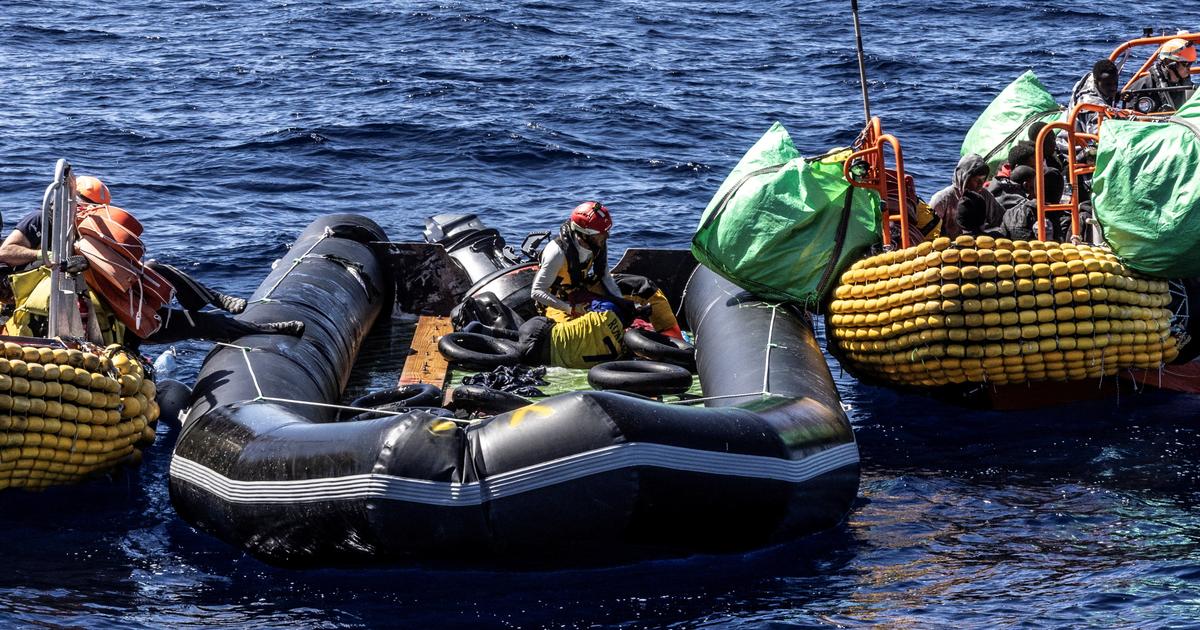Enlarge image
Design study of the new »Uthörn«
Photo: Alfred Wegener Institute / Ms. Fassmer
The »Uthörn« has been sailing scientists from Bremerhaven and Helgoland across the sea for decades.
Now the research cutter of the Alfred Wegener Institute (AWI) has had its day and is to be replaced by a new ship.
And that should be at the forefront when it comes to climate and environmental protection.
The new "Uthörn" is currently being built at the Fassmer shipyard in Berne, Lower Saxony. When the 35-meter ship is handed over to the researchers in October, a special drive will bring the “Uthörn” forward as CO2-neutral as possible and test a concept that has not yet been tried and tested for shipping. The developers use methanol as a fuel instead of marine diesel.
The liquid, odorless and non-explosive alcohol still powers an internal combustion engine. However, fewer soot particles are released into the air when methanol is burned than with gasoline, diesel or heavy oil. Two converted diesel engines are used on the »Uthörn«, which together have a maximum output of 600 kW and supply the power for two electric traction motors. These methanol engines are currently being developed specifically for the project, according to a press release from the AWI. In theory, methanol could also be mixed with gasoline. Even then, it would have even better properties than the ethanol or bioethanol used in E10 fuel today.
But whether the »Uthörn« actually drives almost CO2-neutrally depends on the manufacture of the methanol fuel used. In the case of green methanol, it is important that production is coupled with renewable energies. However, this often happens with fossil natural gas, for example. A supply contract for green methanol is therefore to be agreed for the new AWI ship. "I am glad that with the Uthörn successor we are taking the path of climate and environmentally friendly energy supply," says AWI boss Antje Boetius.
In Bremerhaven there are also plans to create a center for green methanol in the medium term. There, in a model project with renewable electricity from an 8-megawatt wind turbine, water is to be split into hydrogen and oxygen by means of electrolysis. From this green hydrogen and the CO₂ from a nearby sewage treatment plant, green methanol could then be synthesized in the next step, the combustion of which only releases the CO₂ that was previously bound during its production. In the long term, the seaside city could become a center from which other ships also use the bio-fuel. As one of the very first port locations, it is said that both sustainably produced hydrogen and sustainable methanol can be offered as fuel.
The researchers draw attention to other advantages of the methanol ship: In the event of an accident, methanol dissolves in the water.
"Bacteria eat it up immediately, so that the fuel does not pose a major environmental hazard," says Boetius.
However, the new »Uthörn« also needs significantly larger fuel tanks than its predecessor, as the alcohol has only half the energy density of diesel.
More than any other transport industry, shipping contributes to the release of climate-damaging carbon dioxide. International maritime transport accounts for around 2.5 percent of all CO2 emissions worldwide. A large container ship uses as much fuel as 100,000 cars per year. This is why the industry urgently needs new concepts for a more climate-friendly movement of goods on the world's oceans. The developers are relying on similar ideas.
In addition to methanol, green ammonia could also have a promising future.
Hydrogen is considered impractical because it can only be stored under extremely high pressure.
But many of these future concepts are still facing major challenges, and infrastructure is one of them.
Therefore, methanol may only help partially.
The Danish Maersk Line, for example, announced that it would put a ship into operation in the near future that could use green methanol in addition to conventional marine diesel.
The concept of the methanol ship is not entirely new.
In Sweden, a pilot transfer boat has already been retrofitted for a similar project, and good experiences have been made there, it is said.
And in Essen there has been an excursion boat on the Baldeneysee with a methanol fuel cell for several years.
joe














